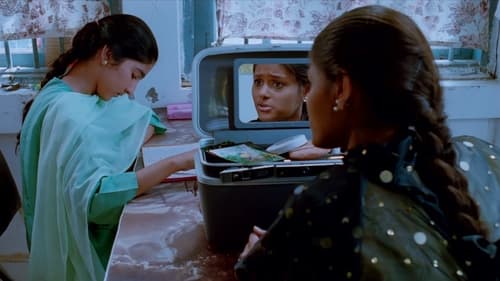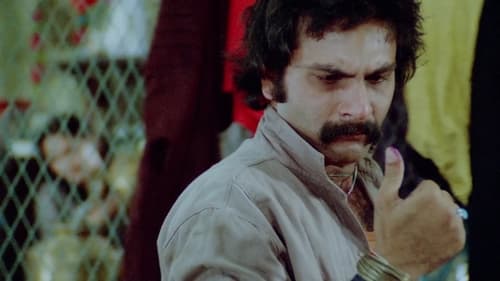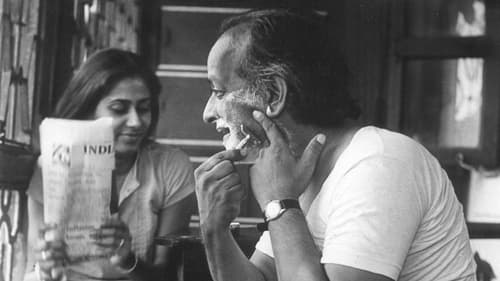Saeed Akhtar Mirza
出生 : 1943-06-30, Mumbai, India

Self
A portrait of independent filmmaker Saeed Mirza best known for cult arthouse films that tackle socio political tensions in India.

Self
Indian documentary about Indian film history and P. K. Nair, the founder of the National Film Archive of India and guardian of Indian cinema. He built the archive can by can in a country where the archiving of cinema was considered unimportant.

Screenplay
Mumbai, 1992. Naseem, a 15 year-old schoolgirl, lives with her grandfather and grows up with stories of pre-independence communal harmony. Later, she helplessly watches the communal situation regression with the demolition of Babri Masjid.

Director
Mumbai, 1992. Naseem, a 15 year-old schoolgirl, lives with her grandfather and grows up with stories of pre-independence communal harmony. Later, she helplessly watches the communal situation regression with the demolition of Babri Masjid.

Director
Salim was born lame. He lives with his family and is looking for a suitable groom for his sister. In the process, Salim gets pulled into a life of crime and communal violence. He wants to reform but there is no redemption for him.

Story
An old couple, Mohan Joshi and his wife, sues their landlord for not maintaining their 'collapsing' apartment building. For this, they hire two cunning lawyers. The court case drags on for years and the lawyers milk the old couple dry, while they become rich. Back home in the society, the old couple is ridiculed for fighting the landlord, but they fight on nevertheless.

Screenplay
An old couple, Mohan Joshi and his wife, sues their landlord for not maintaining their 'collapsing' apartment building. For this, they hire two cunning lawyers. The court case drags on for years and the lawyers milk the old couple dry, while they become rich. Back home in the society, the old couple is ridiculed for fighting the landlord, but they fight on nevertheless.

Director
An old couple, Mohan Joshi and his wife, sues their landlord for not maintaining their 'collapsing' apartment building. For this, they hire two cunning lawyers. The court case drags on for years and the lawyers milk the old couple dry, while they become rich. Back home in the society, the old couple is ridiculed for fighting the landlord, but they fight on nevertheless.

Producer
'Albert Pinto Ko Gussa Kyun Ata Hai' revolves around the Pintos and the people connected to them. There's Albert who's pretty much angry at everybody. His brother Dominic who thinks it's better to be jobless than to work an underpaid job, his patient sister Joan who works at a sari shop, his independent girlfriend Stella who feels under-appreciated by her boyfriend, his father and his colleagues, client and Stella's family. The film is very much a social commentary about Middle-class life in Bombay during the late ’70s and the conflicts arising in the labour force because workers were getting severely underpaid.

Story
'Albert Pinto Ko Gussa Kyun Ata Hai' revolves around the Pintos and the people connected to them. There's Albert who's pretty much angry at everybody. His brother Dominic who thinks it's better to be jobless than to work an underpaid job, his patient sister Joan who works at a sari shop, his independent girlfriend Stella who feels under-appreciated by her boyfriend, his father and his colleagues, client and Stella's family. The film is very much a social commentary about Middle-class life in Bombay during the late ’70s and the conflicts arising in the labour force because workers were getting severely underpaid.

Director
'Albert Pinto Ko Gussa Kyun Ata Hai' revolves around the Pintos and the people connected to them. There's Albert who's pretty much angry at everybody. His brother Dominic who thinks it's better to be jobless than to work an underpaid job, his patient sister Joan who works at a sari shop, his independent girlfriend Stella who feels under-appreciated by her boyfriend, his father and his colleagues, client and Stella's family. The film is very much a social commentary about Middle-class life in Bombay during the late ’70s and the conflicts arising in the labour force because workers were getting severely underpaid.

Writer
Arvind Desai is the only son of a rich businessman who deals in luxury handicrafts and products. His feelings for his father are mixed—while he hates his dominating nature, he admires his power and lack of scruples. He has long discussions on art and politics with a Marxist friend Rajan, is seeing his father's secretary Alice, and sometimes he visits a prostitute, Fatima. Much against his wishes, his marriage is arranged to a girl from a high-class family that has just returned from Paris; much to the dismay of Alice's mother, who realizes that Alice was just time-pass for Arvind and nothing more.

Director
Arvind Desai is the only son of a rich businessman who deals in luxury handicrafts and products. His feelings for his father are mixed—while he hates his dominating nature, he admires his power and lack of scruples. He has long discussions on art and politics with a Marxist friend Rajan, is seeing his father's secretary Alice, and sometimes he visits a prostitute, Fatima. Much against his wishes, his marriage is arranged to a girl from a high-class family that has just returned from Paris; much to the dismay of Alice's mother, who realizes that Alice was just time-pass for Arvind and nothing more.

Director
A stylized version of Vijay Tendulkar’s radical Marathi play chronicling the Peshwa regime in western India, a collective effort of direction and cinematography made by an independent group of young filmmakers.












